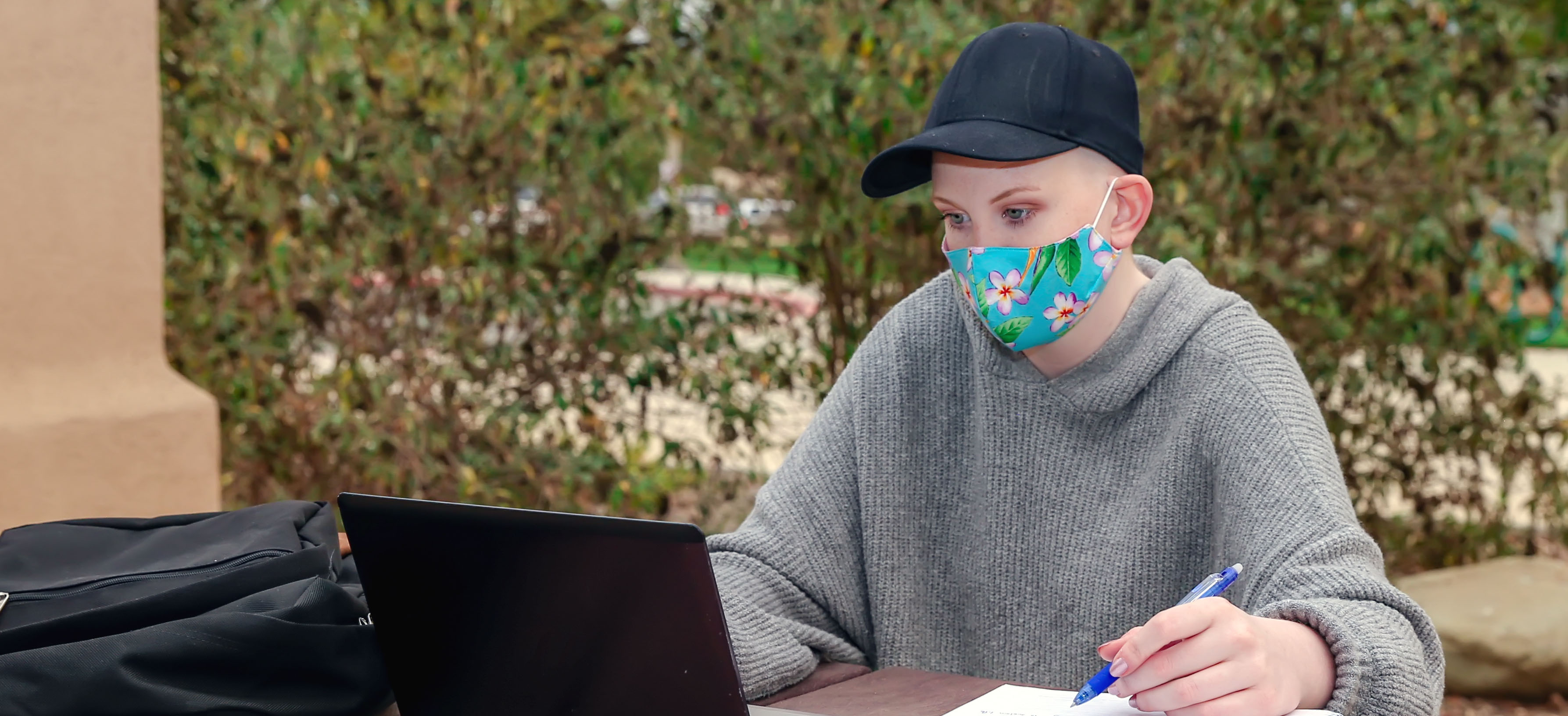
COVID-19 vaccine for teens with compromised immune systems: Should you get a booster?
Vaccines are the best way to protect ourselves and those we love from getting COVID-19, especially as the more contagious delta variant spreads and causes more severe symptoms. Vaccines are especially important for teens and adults who have conditions that impact their immune system’s ability to fight off infection. Although the vaccine is highly effective at preventing severe illness and hospitalization, teens with compromised immune systems may not respond as well to the COVID-19 vaccine – that’s where booster shots come in to play. Should you get one?
A boost to keep you healthy
The Centers for Disease Control and Prevention recommends that moderately to severely immunocompromised people receive a third COVID-19 vaccine dose, or booster shot. This recommendation arises from recently published data showing a lower vaccine response in people with reduced immune function who received the full two doses of the Pfizer or Moderna COVID-19 vaccine. The third vaccine dose has been shown to offer increased protection against COVID-19.
The recommendation applies to people over the age of 12 (Pfizer) or 18 (Moderna or Pfizer). At this time, this recommendation does not apply to patients 18 and up who received the Johnson & Johnson single-dose vaccine. If you received J&J, we recommend checking with your provider as guidelines are quickly changing.
The recommendation for a third dose of the vaccine is for people who have:
- Been receiving active cancer treatment for solid tumors or cancers of the blood
- Received an organ transplant and are taking medicine to suppress the immune system
- Received a stem cell transplant within the last two years or are taking medicine to suppress the immune system or to treat for graft-versus-host disease (GVHD)
- Moderate or severe primary immunodeficiency, such as DiGeorge syndrome, Wiskott-Aldrich syndrome or aplastic anemia
- Advanced or untreated HIV infection
- Active treatment with high-dose corticosteroids or other drugs that may suppress your immune response due to therapy for blood cancers or for autoimmune diseases
Scheduling your booster shot
If you or your child have one of these conditions, ask your health care provider if you should receive a third dose of vaccine. If you are a CHoR patient, you can schedule your booster shot with your CHoR provider or by calling 804-628-0223.
There are separate and specific guidelines for first-time COVID vaccinations of patients who have had autologous or allogeneic stem cell transplants or CAR T-cell therapy. If you have received these therapies, check with your transplant team about whether and when the COVID vaccine is right for you.
The booster shot should be given no sooner than 28 days from the completed second dose of the Pfizer or Moderna vaccine. The vaccine should be of the same manufacturer as the initial vaccine received, if possible. That means if you originally received the Pfizer vaccine, you should receive the Pfizer booster. If you received the Moderna vaccine, you should receive the Moderna booster, if possible.
The CDC also recommended a third dose of the Pfizer or Moderna vaccines “for all Americans beginning the week of September 20 and starting 8 months after an individual’s second dose. At that time, the individuals who were fully vaccinated earliest in the vaccination rollout, including many health care providers, nursing home residents and other seniors, will likely be eligible for a booster.”
CALL TO SCHEDULE A COVID-19 BOOSTER APPOINTMENT
What if my child has a compromised immune system and isn’t old enough to be vaccinated?
Vaccines are currently only available for people ages 12 and up. Trials are underway to study the vaccine in younger children – and results so far are very promising! A vaccine for children under 12 could be available in the coming months. In the meantime, it’s important for EVERYONE to continue to practice COVID-19 prevention measures:
- Wear a mask over your mouth and nose
- Wash your hands and avoid touching your face
- Watch your distance! Stay at least 6 ft. away from others when possible
- Wait to gather in large groups, like concerts, large indoor events, etc.
We’re here for you
The pandemic has brought so many changes to our daily lives. From school and visiting family and friends – to how we care for children and families in our clinics. We’re here if you have questions. Concerned about whether your child should get a booster of the COVID vaccine? Speak with your CHoR provider at your next visit, or message them via the patient portal.
Call to schedule a booster vaccine appointment
Learn more about the COVID-19 vaccines
References:
CDC Recommendations on COVID Booster Dosing, Updated August 13, 2021:
- https://www.cdc.gov/coronavirus/2019-ncov/vaccines/recommendations/immuno.html
- https://www.cdc.gov/vaccines/covid-19/clinical-considerations/
Fact Sheets:
- Pfizer: https://www.fda.gov/media/144414/download
- Moderna: https://www.fda.gov/media/144638/download
This information is accurate as of September 2, 2021.
